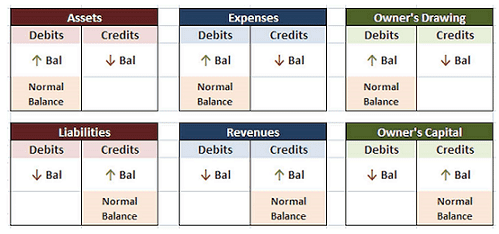
Apple Pay has become one of the dominant mobile payment solutions, particularly for iOS users. With biometric authentication through Face ID and Touch ID, it offers enhanced security and convenience. In addition to taking payments, PayPal offers Buy Now, Pay Later options, cryptocurrency purchases, and enhanced checkout solutions.
Account Receivable

When selecting a payment processing company, transparency in fees and pricing structures is important. Helcim also integrates with dozens payment system service provider of popular accounting software, billing systems and shopping carts, plus sells card readers that work on nearly any device. While the payments powerhouse has had mixed reviews over the years and over its varied service offerings, its credit card solutions are regarded by users as highly versatile and reliable. Easebuzz is a full-stack payment solution tailored for digital-first businesses, offering API-driven tools to handle everything from collections to payouts.
- Additionally, it has data export capabilities, invoicing, contactless payments and is PCI compliant.
- At a certain sales threshold, typically around $250,000 in payments processed annually, most PSPs will negotiate lower processing rates.
- However, you can expect to have to pay them if you integrate a third-party gateway into your account instead of using the one offered by your merchant services provider.
- It involves upfront development costs and ongoing maintenance, which are resource-intensive and can slow your business down.
- By offering a range of services, PSPs enable merchants to accept payments from customers using various payment methods.
- Integrate with third-party platforms to ease analysis, billing, and e-commerce operations.
Integrations & custom solutions

Banks, on https://www.bookstime.com/accounting-and-finance the other hand, are responsible for storing funds and issuing payment solutions like credit and debit cards. Formerly Fattmerchant, Stax is a payment processing company that offers a rare subscription-based model with low per-transaction fees added to the interchange rate. Subscriptions start at $99 per month based on monthly credit card processing volume, and per-transaction fees range from eight cents to 10 cents based on plan tier and type of sale. It also offers several software packages ranging from $49 to $129 per month that include dashboards, reporting and ACH processing, as well as invoicing, Text2Pay and advanced reporting and support. A payment service provider (PSP) ensures merchants get paid by partnering with acquiring banks and their payment processors.
- The role of PSPs fits right into the bigger picture of online payment transactions.
- This allows businesses to maintain the same provider as they expand, avoiding the hassle of switching or setting up new payment solutions.
- Helcim has gained popularity for its transparent volume-based pricing model that automatically reduces rates as your business processes more payments.
- Cashfree provides a wide range of payment options such as Visa, Mastercard, Maestro, Rupay, Amex, 75+ net banking options, and popular mobile wallets.
- The rapid growth of ecommerce and digital payments has transformed the way businesses and customers interact.
What is a payment processing company?

Skrill is often compared with PayPal, where both offer zero fees for transfers between two parties within the network. Adyen has complete control over payment flow for improved rates and reduced fees. Adyen is best for businesses expanding globally to accept payments, optimize revenue, and manage finances. Its solid focus on ROI has garnered the loyalty of numerous clients such as Monday.com, Ford, Outbrain, TitanHQ, Namely, etc. Customize your payment processing with Bluesnap’s white-label solutions for a strong brand identity. BlueSnap modernizes global payments with its comprehensive payment platform and expertise.
It involves upfront development costs and ongoing maintenance, which are resource-intensive and can slow your business down. In this article, we’ll cover the basics of a payment service provider and explore essential considerations when choosing one. We’ll also highlight a new evolution in payment processing that can help you optimize your business.
Also known as third-party processors, PSPs enable a broad range of payment options in an all-in-one solution. They typically offer immediate account approval with no long-term contracts, simple, flat-rate processing fees and fully integrated software, POS systems and hardware. Selecting the right payment service provider (PSP) is an important decision that can significantly impact a company’s overall performance, customer experience, and potential growth. What I like is that with Stax, you can also choose from several add-ons, including surcharging, lending, one-click shopping cart, QuickBooks Online Pro Sync and same-day funding, giving users more versatility. It also offers industry-specific solutions for retail, professional services, field services and healthcare.
How payment service providers work
Strong security features are the most important thing to look for in a payment gateway. At a minimum, your gateway should use end-to-end encryption and be fully PCI-compliant. Other security features to look for include tokenization support, AVS checks, and CCV checks. You should also seriously consider optional security features such as fraud analytics software (e.g., 3D Secure) and data breach insurance. The company also has an excellent reputation for customer support, petty cash which is one of the most important features to look for in a merchant services provider. The best payment gateways offer a wide range of standard features, extensive customization options, and strong transaction security at an affordable price.
Payment Processing Rating Methodology
Processors and merchant acquirers such as Worldpay from FIS also provide payment gateways as part of their suite of acquiring services. A gateway sits between the merchant and the processor to capture and encrypt card and transaction data. The gateway packages that data and submits it on the merchant’s behalf to the processor for routing to the card networks and to the issuing bank. Furthermore, PhonePe facilitates payments through various channels, including its dedicated wallet, debit cards, and credit cards.